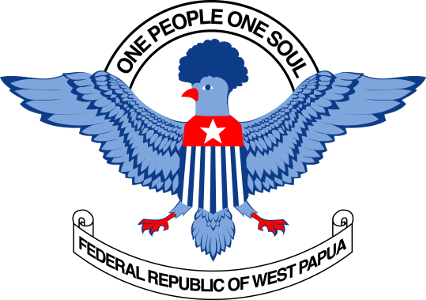MEDIA STATEMENT, 15 July 2018
Strafing a village from a helicopter isn’t democracy: Indonesia fire-bombs a heritage highland village where indigenous Papuans have lived for thousands of years
Jacob Rumbiak, Spokesperson for the United Liberation Movement for West Papua, severely criticised the Indonesian Government for strafing the village of Kalguru after government elections this month, and has called for the UN to intervene and mediate talks.
As well as video of military-helicopters circling the flaming village after the election, extra military, police and intelligence were sent to Nduga, an isolated highland regency, in preparation for the election: in the same month that Indonesia managed to parlay its minimalist commitment to democracy into a prized seat on the UN Security Council.
“Roulette democracy may have worked for Sukarno and Suharto, but it won’t work for Jokowi, and it definitely isn’t working for West Papuans in 2018. We are a land-owning sovereignty, and we are getting our country back” said Rumbiak from his office in Docklands (Melbourne).
“The Indonesian government’s incineration of Kalguru is the republic’s scorched-earth policy at work; leaving us with a mass of heritage-charcoal and hundreds of women and children in the forest without food and medicine”.
No one knows how many have been killed this month. Today Pastor Zakeus Kogoya, head of the Kingmi Church in Kenyam, found three bodies on the banks of the Pomats River. He doesn’t know who they are or why they are dead.
As reported in The Washington Post, it is Indonesian Government politicians—the local regent (bupati) and the Head of the Papua Provincial Parliament—who separately called on the Indonesian Security Forces to leave the area (Papuan leaders protest Indonesian attack on village, The Washington Post, 13 July 2018).
During the incredible display of Indonesian governance, there has been no criticism—from the people or from Indonesian government politicians—of the West Papua Liberation Army’s implementation of its duty to protect the land and its resources and the people and their rights.
Jacob Rumbiak, Spokesperson, United Liberation Movement for West Papua
BACKGROUND In two previous ULMWP Statements, it was reported that in preparations for the election, the Indonesian government directed regency-based military, police and intelligence to encourage civilians in Nduga to vote. The dangerous provocation sparked West Papua’s National Liberation Army (TPN PB OPM) to shoot at a Twin Otter plane carrying 18 BRIMOB commandoes and three transmigrants from Sulawesi after it landed in Kenyam, the capital of Nduga Regency, on 25 June 2018. Seventy Indonesian security agents then engaged in a ninety-minute shoot-out with the West Papuan Army during which the transmigrants (one of them armed) were killed. Three days later Egianus Kogoya, Commander of the TPN PB OPM operation, raised West Papua’s Morning Star flag in front of the Nduga Parliament signalling the people’s continuing refusal to vote. The Indonesian government then deployed anti-terrorist commandos. After four were killed, they turned on the civilians who fled to the forest. Shortage of food and medicine forced the regent (bupati) Yarius Gwijangge to invite the Indonesian military and police to a peace ceremony. The invitation was rejected, unless Gwijangge organised the surrender of the TPN PB OPM. On 11 July, after the elections, Indonesian Security Forces fire-bombed Kalguru village on the other side of the Pomats River.
